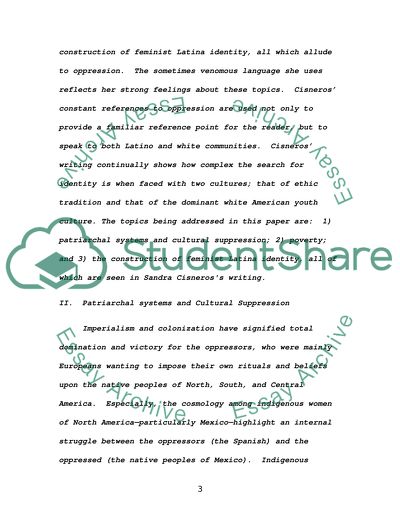Cite this document
(“Opression in Sandra Cisneros's Writing Research Paper”, n.d.)
Retrieved from https://studentshare.org/literature/1424856-poverty-cultural-suppression-self-identity-and
Retrieved from https://studentshare.org/literature/1424856-poverty-cultural-suppression-self-identity-and
(Opression in Sandra Cisneros'S Writing Research Paper)
https://studentshare.org/literature/1424856-poverty-cultural-suppression-self-identity-and.
https://studentshare.org/literature/1424856-poverty-cultural-suppression-self-identity-and.
“Opression in Sandra Cisneros'S Writing Research Paper”, n.d. https://studentshare.org/literature/1424856-poverty-cultural-suppression-self-identity-and.


